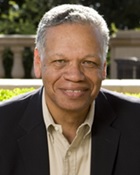Managerial Accounting

You are about to begin an exciting Interactive journey with us that will introduce you to the language of Business and Finance. Successful completion of this course will enable you to understand how accounting systems are used to record the day-to-day economic activities of a business and to generate reports about its financial health and performance.
Faculty

Prof. Phillip Leslie
Professor
Phillip has also written a series of papers on information disclosure as a policy tool. For example, in one study he shows that restaurant hygiene grade cards caused a 20% decrease in the number of people admitted to hospital with food-related illnesses. Another study shows that consumers at Starbucks reduced calorie purchases by 6% due to calorie posting on the menus.
In other research, Phillip has written about managerial incentives in private equity, consumer boycotts, inspection design and the behavior of inspectors, and the returns to education. His research is published in the American Economic Journal, American Economic Review, Journal of Labor Economics, Quantitative Marketing and Economics, Quarterly Journal of Economics and the RAND Journal of Economics.
Phillip is a Research Associate of the National Bureau of Economic Research. At Anderson he teaches strategic management and he is an experienced executive education teacher.
Education
Ph.D. Economics, 1999, Yale University
M.Phil. Economics, 1996, Yale University
M.A. Economics, 1994, Yale University
- Comm. Economics, Honors 1993, University of Melbourne
- Comm. Economics, First Class Honors 1991, University of Melbourne

Prof. Al Osborne
Professor
Dr. Osborne is also professor of Global Economics and Management and founder and faculty director of the Harold and Pauline Price Center for Entrepreneurial Studies. The Price Center serves to organize faculty research, student activities and curricula related to the study of entrepreneurship and new business development at UCLA Anderson including the Management Development Entrepreneurs Program. He has been at UCLA since 1972.
Course Learning Objectives:
- Discover how balance sheets, income statements, and cash flow statements are developed and how each interacts
- Evaluate the financial health of a business using financial statements
- Understand IFRS and GAAP standards
- Inventory valuation
- Revenue and receivable
- Depreciation and Long-lived assets
- Financial ratios to evaluate financial health
- Investment and income
- Deferred taxes & Tax expense
- Liability and Financing cost
Syllabus
Learning objectives:
- Briefly explored three fundamental accounting statements,
- learned about the entity concept, the money measurement concept, the going concern concept, the consistency concept, and the materiality concept,
- started to appreciate the inherent conflict between relevance and reliability that accountants must resolve in setting standards and preparing financial reports,
- been introduced to accrual accounting and GAAP and their use in financial accounting practice, and
- Learned that in the near future GAAP may be replaced by IFRS
Module content :
- Reading
- Video
- Quiz
